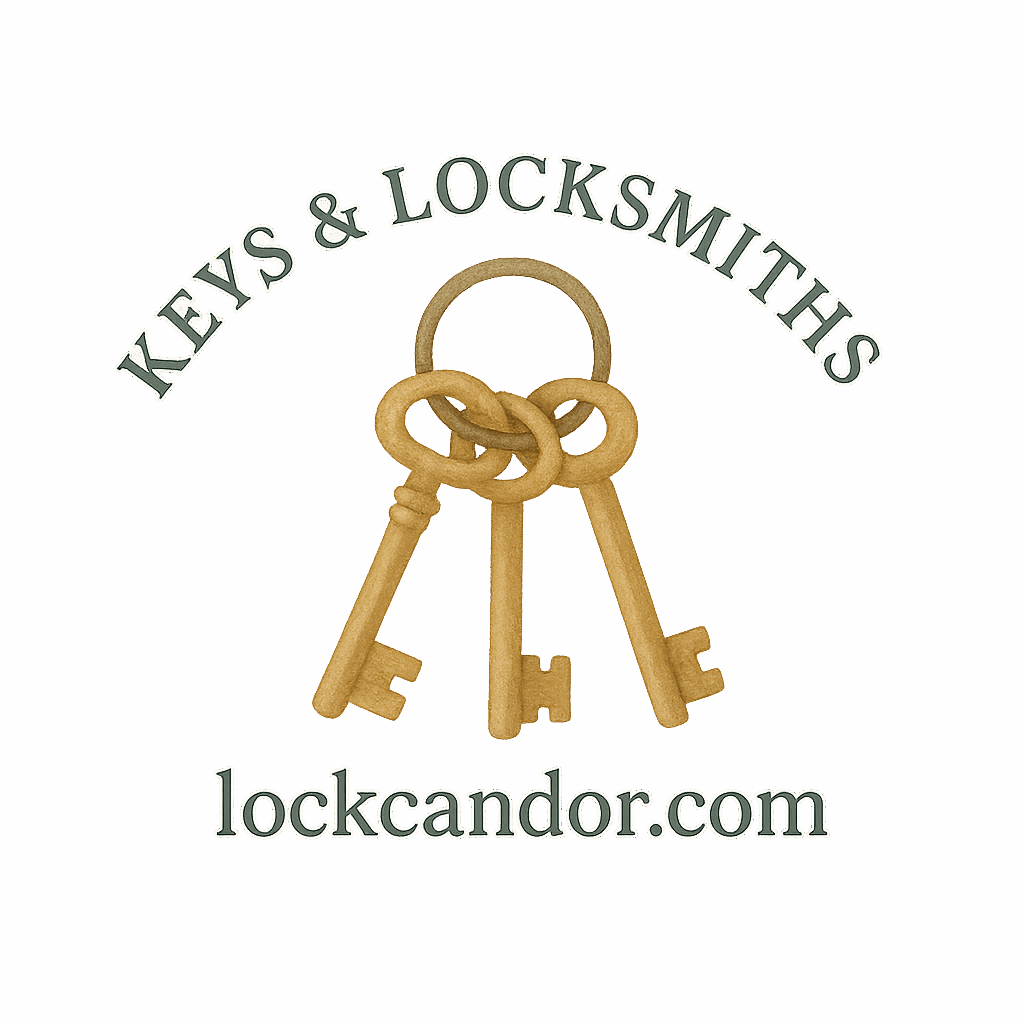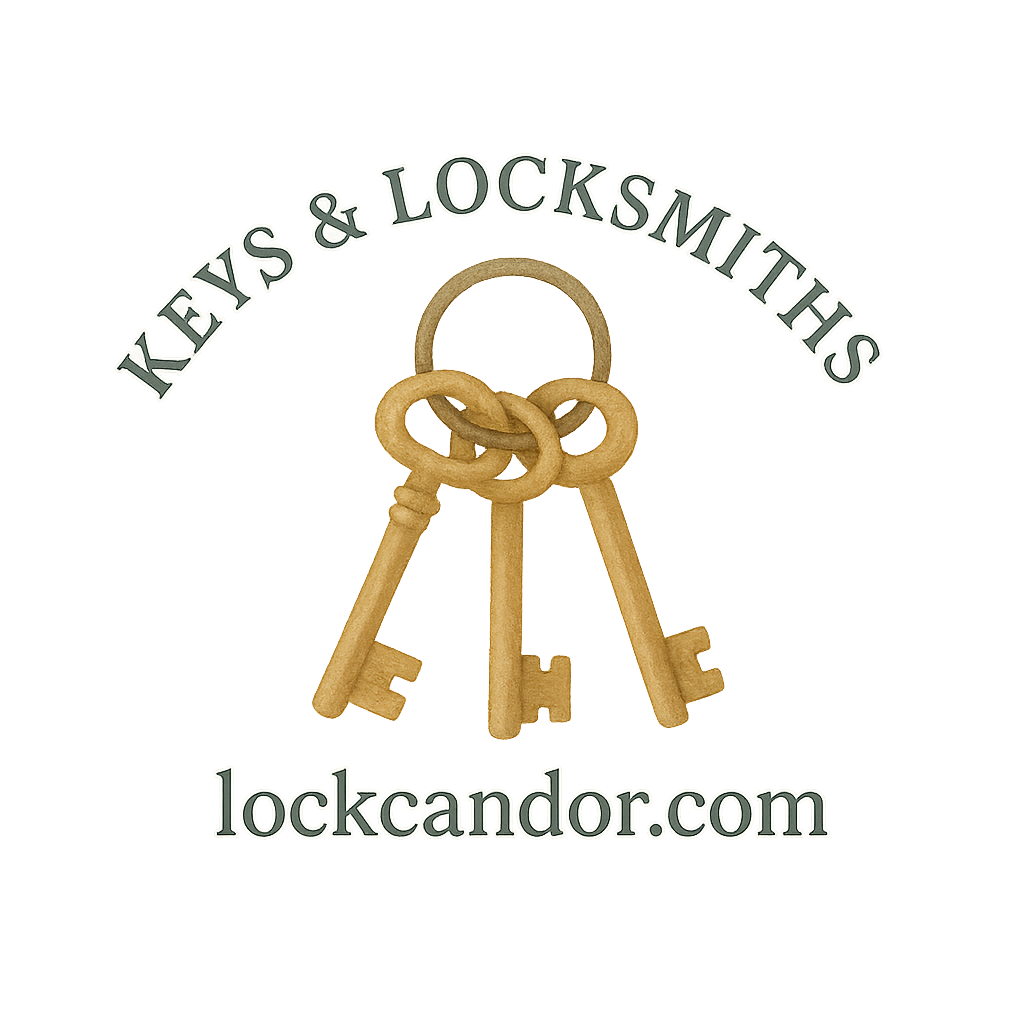Choosing a commercial lock isn’t just about picking the sturdiest hardware off the shelf. It’s a strategic decision that impacts your property’s safety, daily operations, and long-term security infrastructure. Let’s dive into the 10 most critical factors you should think about before installing a commercial lock, so your business stays safe, efficient, and worry-free.
Why Choosing the Right Commercial Lock Matters
When it comes to securing a business, a lock does more than just prevent unauthorized entry. It serves as a frontline defense against theft, protects sensitive information, and ensures only authorized personnel access your space. Selecting the wrong type of lock can put your entire operation at risk.
For more tailored security solutions, check out Lock Candor’s commercial high-security locks.
1. Type of Commercial Property
Not all commercial properties are built the same — and neither are their security needs.
Office Spaces vs Retail Stores
Offices usually require interior locks for rooms like server areas, while retail stores need strong entrance locks due to public exposure. Don’t treat all locks the same — context is everything.
Warehouses and Industrial Units
These spaces typically need robust lock systems that can withstand harsh conditions and manage access for multiple personnel.
Discover more about protecting commercial spaces via our business security tag.
2. Level of Security Required
How valuable is the stuff you’re protecting? That’s the real question.
High-Security Zones vs Public Access Areas
Sensitive areas such as data centers or storage rooms need high-grade locks. Public-facing doors may only need moderate protection with easy access.
Match Lock Strength to Threat Level
Don’t put a dollar store padlock on a million-dollar storage room. Upgrade to commercial high-security locks that match the threat level.
3. Lock Type and Mechanism
The lock mechanism you choose impacts not just security, but also convenience.
Deadbolts, Smart Locks, Keyless Entry
Smart locks offer remote access, while traditional deadbolts provide tried-and-true toughness. Choose based on your team’s tech-savviness and risk exposure.
Mechanical vs Electronic Locks
Mechanical locks are reliable with fewer failure points. Electronic locks offer more flexibility but can be vulnerable to power outages or hacks.
Explore more in our lock options tag.

4. Compliance with Local and National Regulations
Some commercial buildings must meet specific safety codes and ADA compliance standards. Before choosing a lock, confirm it meets fire codes, exit accessibility requirements, and local safety ordinances.
For emergencies, locks should also support fast evacuation — visit our emergency lock situations guide to learn more.
5. Integration with Existing Security Systems
Your lock system should work in harmony with your current tech.
Surveillance and Alarm Compatibility
Make sure your locks can be synced with existing surveillance systems and motion alarms. Integration makes your building smarter and more secure.
Centralized Control Systems
Centralized access management allows for better employee oversight, especially in larger facilities.
Check out related insights in our lock systems tag.
6. Durability and Weather Resistance
A lock exposed to the elements must be durable. Stainless steel locks and anti-rust coatings are key for outdoor commercial settings like loading docks or exterior entryways.
Explore our solutions for rugged environments at lock repair and maintenance.
7. Ease of Use and Accessibility
A secure lock shouldn’t be a headache to operate.
ADA Compliance and User Friendliness
Commercial locks must cater to all users — including those with disabilities. Look for push-button or lever-style mechanisms that are easy to use for everyone.
Visit home locks and residential security for accessibility standards that apply to both homes and businesses.
8. Budget and Cost of Installation
Price matters — but value matters more.
Initial Cost vs Long-Term Value
Cheap locks can cost you more down the road in repairs and replacements. A one-time investment in a high-security commercial lock could save you thousands in losses.
Get cost-saving tips from our locksmith tips tag.
9. Maintenance and Support
Locks aren’t “set and forget” — they need upkeep.
Ongoing Lock Repair and Service Needs
Ensure your lock choice is backed by reliable support and easy access to repair services. Regular maintenance extends lifespan and prevents failures.
Stay proactive with lock repair and maintenance services and browse the fix locks tag.
10. Future Scalability and Upgrades
Will your business grow? If yes, your lock system should grow too.
Smart systems that allow remote management and easy rekeying are future-proof options. These features are ideal for growing companies with shifting teams or multiple locations.
Learn about expansion-friendly solutions in the commercial locks tag.
Smart Lock Options for Businesses
Modern locks now offer features like:
- Remote unlock from a smartphone
- Time-based access controls
- Entry logs and notifications
- Biometric access
For more, browse our auto locksmith tips and stay ahead with the best in security innovation.
Conclusion
Commercial locks are the backbone of your business’s security. From choosing the right lock type to thinking long-term about scalability, there are several factors to consider before installation. Take time to assess your specific needs, property type, and existing security setup. And don’t forget — the lock is only as good as its ongoing maintenance and integration.
Need expert advice? Visit Lock Candor for professional guidance on commercial lock installations that check all the right boxes.
FAQs
1. What is the best type of lock for a commercial business?
High-security deadbolts and smart locks are typically the best, especially when paired with alarm systems and access control.
2. How much does it cost to install a commercial lock?
Depending on the complexity, expect anywhere from $150 to over $600 per lock including labor and hardware.
3. Can I integrate commercial locks with my existing alarm system?
Yes! Many modern locks are compatible with alarm systems and surveillance platforms.
4. Are smart locks safe for commercial use?
Absolutely — provided they’re properly installed and regularly updated to avoid vulnerabilities.
5. What is a master key system and should I get one?
A master key system lets one key open multiple locks — perfect for managing access levels within a business.
6. How often should I maintain or replace commercial locks?
Annually for maintenance; every 5-7 years for replacement or when performance drops.
7. What should I do during a lockout or emergency?
Contact a professional emergency locksmith immediately. Learn more on our emergency locksmith tag.


